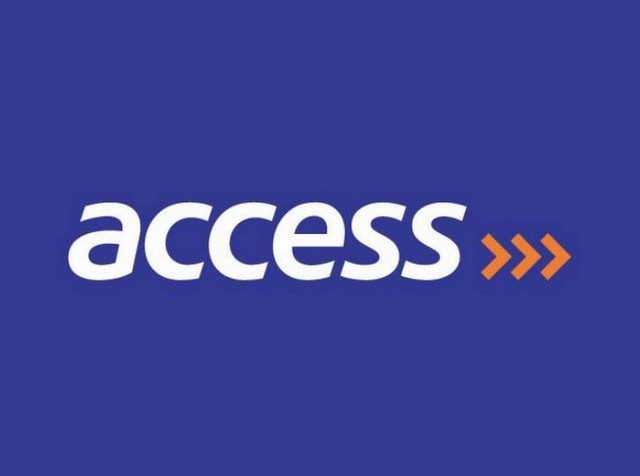Access Bank sustains improved performance

Access Bank has remained on strong growth trajectory as latest earnings reports showed improvements across key performance indicators.
The bank’s focus on assets quality and cost management, appeared to be paying off with strong earnings growth and significant reduction in loan loss provisions, driving overall performance to the Deposit Money Bank to the industry’s top chart.
The improvements in fundamentals have positively impacted share pricing trend at the Nigerian Stock Exchange (NSE), with the bank’s share price rising by more than 70 per cent so far this year.
Access Bank reported an impressive first quarter profits, showing improvement in performance indicators. The bank’s unaudited financial results for the first quarter ended March 31, 2017 showed an increase of 38 per cent in profit before tax to N31.2 billion when compared with N22.6 billion in the first quarter of 2016. The bank’s profit after tax rose by 34 per cent to N26.0 billion in 2017, up from N19.4 billion recorded in the corresponding period of 2016.
Gross earnings stood at N116 billion, an increase of 44 per cent on N80.3 billion reported in comparable period of 2016. Interest income and non-interest income contributed 68 per cent and 31 per cent respectively to the gross earnings. Although loan growth remains subdued in the first quarter and some key fee income businesses weakened, margin expansion and gains on foreign exchange and derivatives have more than compensated. Funding income should remain strong in the near term, supported by relatively high yields on treasury bills.
Also, key extracts of the full-year report for the period ended December 31, 2016 showed that pre-tax profit appreciated by 20 percent to N90.3 billion in 2016 from N75.4 billion recorded in the 2015. Also, post-tax profit climbed up by 9.23 percent to N90.3 billion in 2016 from N75.0 billion in 2015. Gross earnings increased from N337.4 billion in 2015 to N381.3 billion in 2016, indicating an increase of 13.05 percent.
Further analysis of the bank’s finance showed that its balance sheet remained strong with a total assets standing at N3.54 trillion at the end of first quarter, compared to N3.48 trillion recorded as at December 2016. Derivative assets rose from N156 billion as at December 2016 to N161 billion, representing an increase of 3.2 per cent, while its investment in subsidiaries, properties and equipments increased by 2.5 per cent from N84.1billion to N86.2 billion. Its income from derivative instrument has been a topical line item around the bank’s earnings in recent years. The income line offsets the impact of currency devaluation on its foreign currency liability and has consistently supported non-interest income.
The bank’s capital adequacy and liquidity ratios, which are a class of financial metrics used to determine a bank’s ability to pay off its short-term debts obligations, remain 21 per cent and 46.3 per cent respectively, more than the minimum regulatory requirement of 15 per cent and 30 per cent. The higher the value of the ratio, the larger the margin of safety a bank possesses to cover short-term debts. The bank raised a $300 million five-year Eurobond at 10.5 per cent in October 2016 in a bid to support its foreign exchange liquidity, which continues to enhance its balance sheet.
The reports showed that the bank continues to focus on de-risking its portfolio, building a consolidated business, expanding its international network, and driving efficiency through technology innovation in a bid to successfully navigate the tough operating environment. Asides restructuring existing loans, the bank has been cautious about risk asset creation – maintaining a zero exposure to the troubled power sector whilst restricting credit to quality names across other sectors. The bank continues to focus on enhanced technology and innovation to drive efficiency as the bank looks to contain its relatively high operating cost, which came from a high cost base post acquisition of Intercontinental Bank.
Group Managing Director, Access Bank Plc, Mr. Herbert Wigwe said that 2017 marks the end of the bank’s third five-year transformation journey and in the coming months, its priorities will be the delivery of its strategic objectives.
“We will continue to improve on profitability and shareholder value by maintaining our capital and liquidity positions, assiduously implementing our cost management strategy, and exploiting retail business opportunities using our digital platforms and deepening market share of the wholesale business,” Wigwe said.
He assured stakeholders that the bank was now stronger and well positioned to deliver long-term value to its stakeholders. According to him, although the macro-economic conditions and corresponding implications on the banking industry remain uncertain, the bank’s diversified banking model, robust balance sheet and solid management team give it the strength and resilience that will keep the financial institution in good stead.
“By diligently executing our strategy, we will continue to maintain improved profitability and create the capacity to continue to invest in our key areas of strength. As we come to the end of our third five-year transformation journey, our top priority in the coming year will be to cement our position as a dominant corporate bank and establish ourselves as a formidable retail player, leverage digital technology and innovation to create value for our customers whilst unlocking new revenue streams and deliver seamless and superior customer experience across all our service touch points,” Wigwe said.









0 Comments